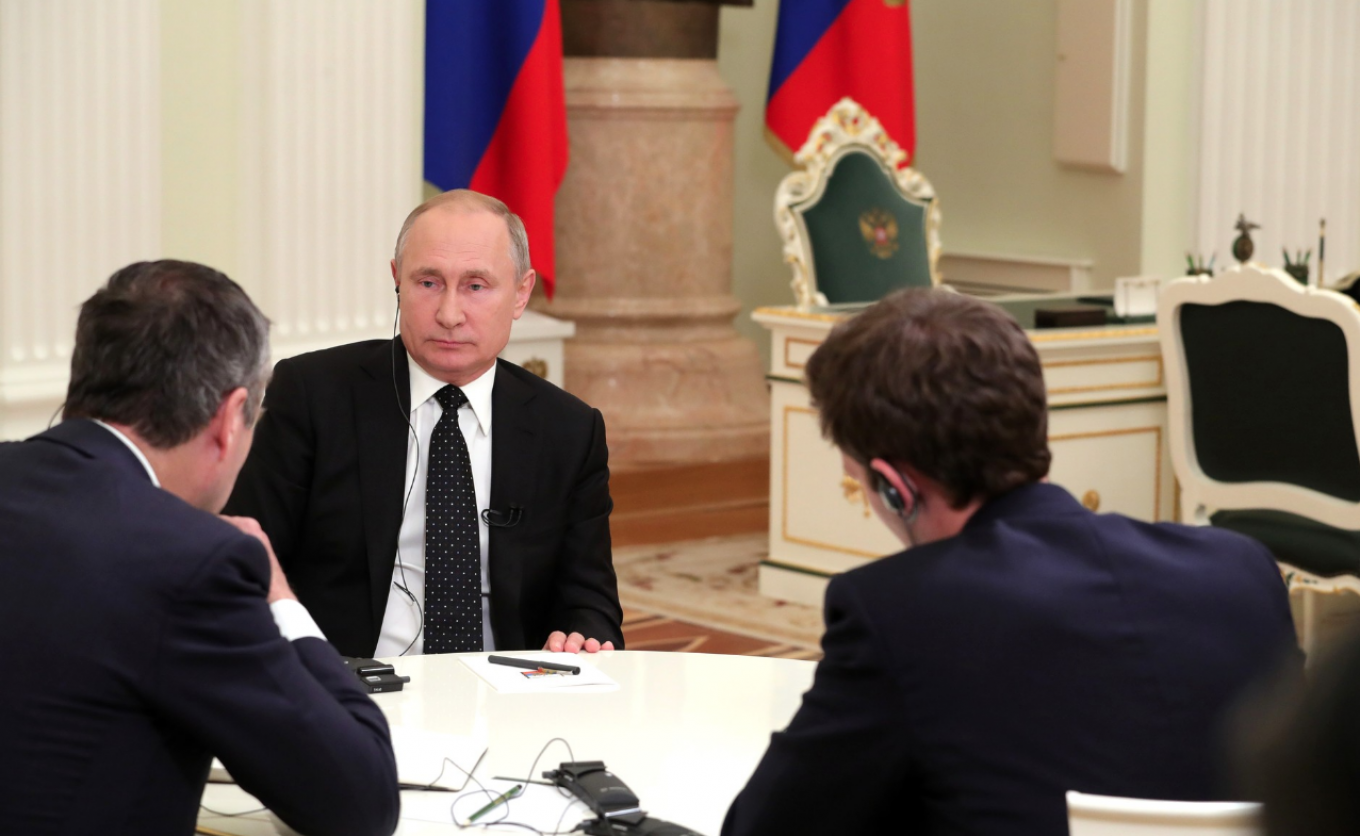
President Vladimir Putin on Thursday gave an exclusive interview to the Financial Times newspaper, a rarity for a president who seldom sits down with foreign journalists.
The Russian president spoke candidly on a wide range of topics, from Russia’s domestic and foreign policy issues to his thoughts on the global trend of national populism and who will succeed him after the end of his term limit in 2024.
In one particularly vivid comment, Putin said liberal values had outlived their purpose and had been rejected by the majority of people in Western nations, drawing criticism from Western leaders.
Here are the highlights from the far-reaching discussion:
On Trump
— “I think that he is a talented person. He knows very well what his voters expect from him.”
— “The middle class in the United States has not benefited from globalization; it was left out when this pie was divided up. The Trump team sensed this very keenly and clearly. It is where you should look for the reasons behind Trump’s victory.”
On China and Chinese-Russian relations
— “We [Russia and China] never direct our bilateral relations against anyone. We are not against anyone, we are for ourselves.”
— Yes, Russia and China have many coinciding interests, this is true… Of course, we have also established very warm personal relations, and this is natural.”
— “You try to rule a country with such a population. This is not Luxembourg, with all due respect to that wonderful country.”
On North Korea
— “What we should be talking about is not how to make North Korea disarm, but how to… make any country, including North Korea, feel safe and protected by international law that is strictly honored by all members of the international community.”
— “… the North Korean nuclear range is not far away from our border. This why this concerns us directly, and we never stop thinking about it.”
On Russia’s presence in Syria
— “I decided that the positive effect from our active involvement in Syrian affairs for Russia would far outweigh non-interference and passive observation of how an international terrorist organization grows ever stronger near our borders.”
— “We have managed to preserve Syrian statehood, no matter what, and we have prevented Libya-style chaos there. And a worst-case scenario would spell out negative consequences for Russia.”
— “[If] Assad steps down today, what will happen tomorrow? When you do not know what happens tomorrow, why shoot from the hip today?”
On the Russia-U.S. arms race
— “We said that we are ready to hold talks and to extend this treaty between the United States and Russia, but we have not seen any relevant initiative from our American partners.”
— “We will support any agreement that can advance our cause, that is, help us contain the arms race.”
On the Venezuela crisis
— “We have no nothing to do with what is happening in Venezuela.”
— “We provide maintenance services for this equipment [in Venezuela] …There are no Russian troops there.”
— “We have invested billions of dollars there, mostly in the oil sector. So what? Other countries are doing the same as well.”
On the Skripal poisonings and Russian-British relations
— “All this fuss about spies and counterspies, it is not worth serious interstate relations.”
— “…these spy scandals made our relations reach a deadlock so we could not develop our ties normally and support businesspeople.”
— “Treason is the gravest crime possible and traitors must be punished. I am not saying that the Salisbury incident is the way to do it. Not at all. But traitors must be punished.”
On Russia’s economy and oligarchs
— “The most important task we need to achieve is to change the structure of the economy and secure a substantial growth of labor productivity through modern technologies, artificial intelligence, robotics and so on.”
— “We do not have oligarchs anymore. Oligarchs are those who use their proximity to the authorities to receive super profits.”
On the Western world, liberalism and traditional values
— “The liberal idea has become obsolete. It has come into conflict with the interests of the overwhelming majority of the population.”
— “[It] presupposes that nothing needs to be done. The migrants can kill, plunder and rape with impunity because their rights as migrants must be protected. What rights are these? Every crime must have its punishment.”
— “Deep inside, there must be some fundamental human rules and moral values. In this sense, traditional values are more stable and more important for millions of people than this liberal idea, which, in my opinion, is really ceasing to exist.”
On his successor
— “No matter what the current leader does and how he does it, not matter who he represents or how, it is the voter that has the final word — the citizen of the Russian Federation.”
— “[A successor will be chosen] by means of a direct secret ballot, universal direct secret ballot. Of course, it is different from what you have in Great Britain. We are a democratic country.”
